An Owners Guide for the Love of the Lapdog
Small breed puppies are extremely popular due to their portable size and adorable looks, but these puppies are often misunderstood. This includes breeds like Yorkshire Terriers, Shih Tzus, Havanese, Pekingese, Pomeranians, Maltese, Dachshunds and so much more. While many of the puppies look like they would be “easy” since they are so small, they require a great deal of commitment and attention from their owners.
For the love of the lapdog, follow these guidelines:
-
Potty Training
Due to their small size, it can be easier for tiny puppies to “get away” with eliminating in the house. They also have smaller bladders which means they need to go more frequently. For this reason, it is important that you remain consistent in your potty-training efforts and do not allow them to wander off unsupervised. Consider the Umbilical Cord Method outlined in our Crate & Potty Training Blog.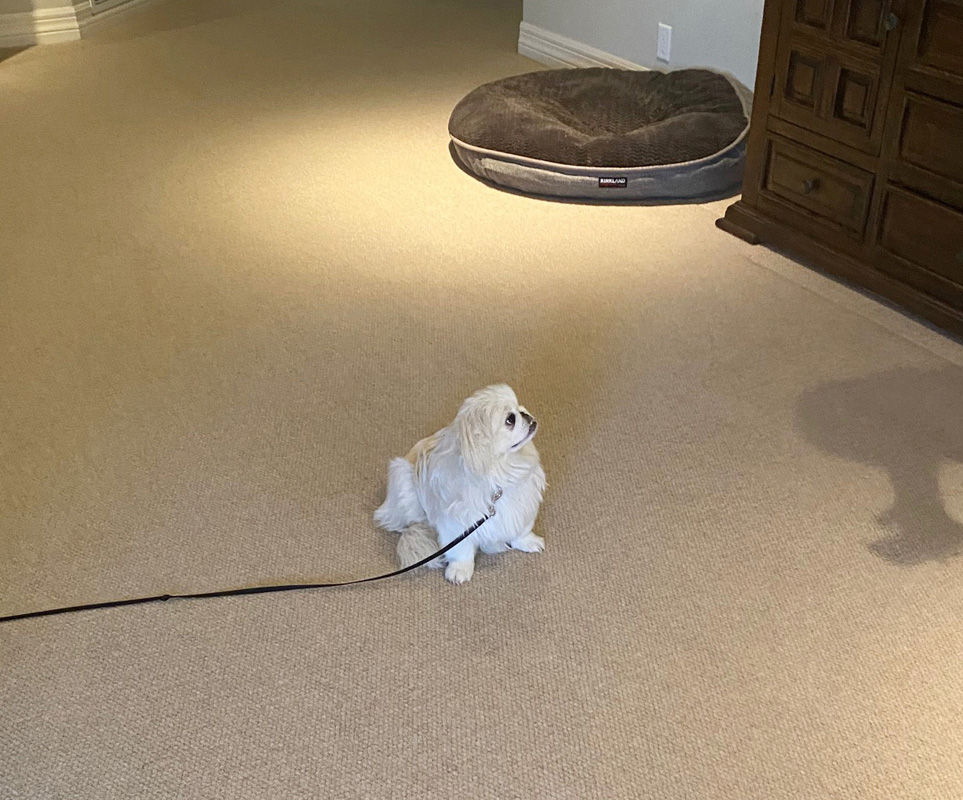
Crate Training is highly recommended; consistency is key! Not only does crate training provide structure to support potty-training, sleeping in a crate is the safest place for your tiny puppy.
Make sure every family member understands their responsibilities and what the expectations are with training your puppy to keep it consistent. Contrary to popular belief, it is not advised to punish your dog if you find an old accident by rubbing their nose in the mess or yelling. They are unable to understand what you are trying to communicate, and it will incite anxiety surrounding the issue.
The best way to correct potty-training puppies is to catch them in the act: quickly grab your pup and direct them to the proper area. Once they eliminate outdoors, offer them a treat or praise to encourage that behavior. Repeat the same phrases, “potty outside” and “go potty”!
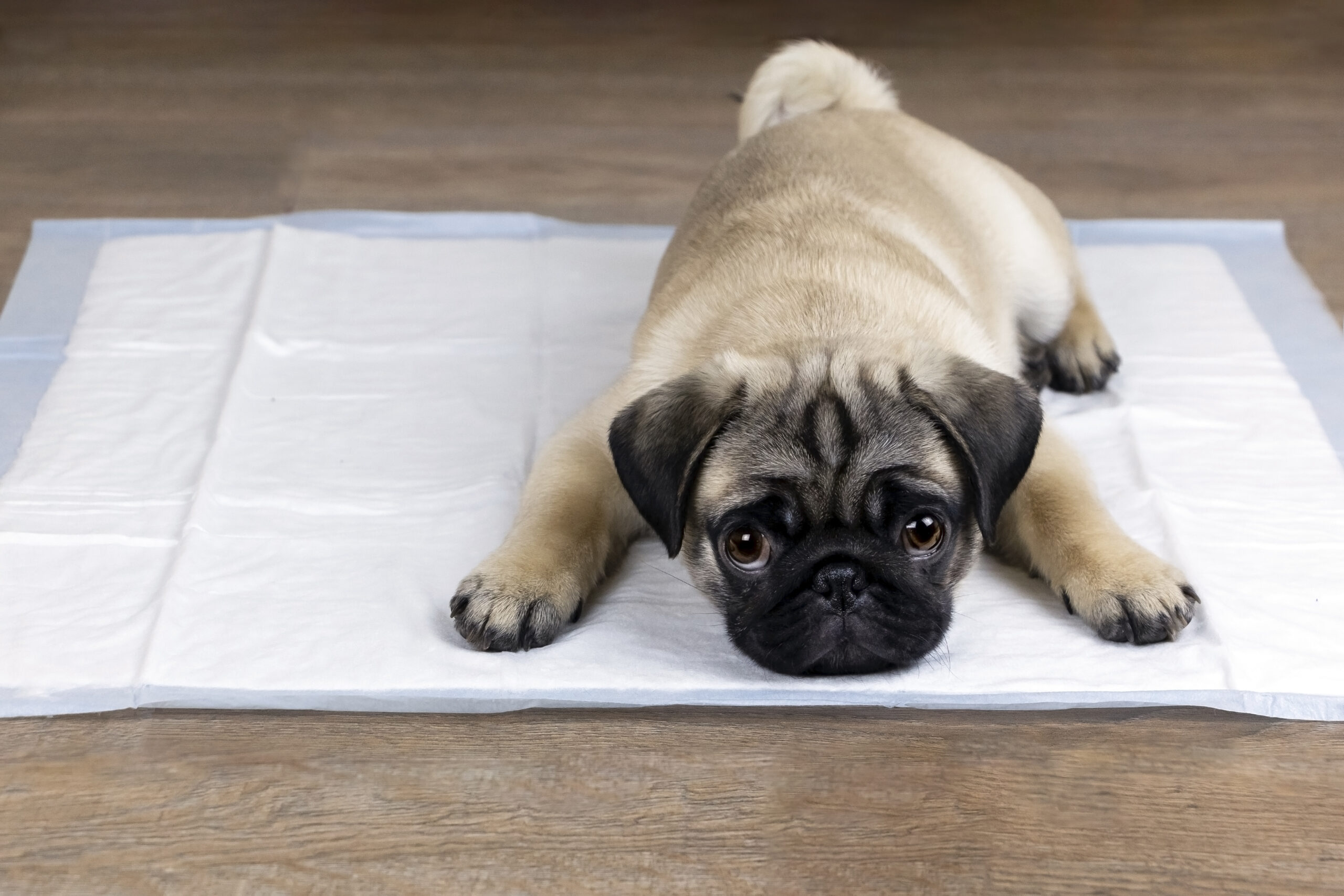 Potty Pads can seem like a saving grace for owners but can also lead to long-term problems. By placing potty pads in the house, you are encouraging your pet to eliminate indoors. This can make it confusing for dogs to understand where they are expected to go.
Potty Pads can seem like a saving grace for owners but can also lead to long-term problems. By placing potty pads in the house, you are encouraging your pet to eliminate indoors. This can make it confusing for dogs to understand where they are expected to go.
Make a schedule for your dog and stick with it. Over the course of a few days, you will notice a pattern of when your pup needs to eliminate. Typically, this occurs first thing in the morning, after eating, a few times during the day, and then right before bed. Maintain a schedule and make sure to reward your pet when they eliminate outside. For very young puppies, you should expect to take them out approximately once every hour.
If your puppy does not eliminate outdoors when they are expected to, do not allow them to roam free in the house. Actively supervise your pup or place your pup back in the kennel for 10-15 minutes and then try again. Do not leave your pup outside unsupervised when they are learning to potty train, it is extremely important to reward them so they can learn the expectations as quickly as possible.
Be aware that accidents will happen. Being proactive and remaining consistent with your efforts will prove to be worth it in the long run. The more diligent you are, the faster potty-training will go!
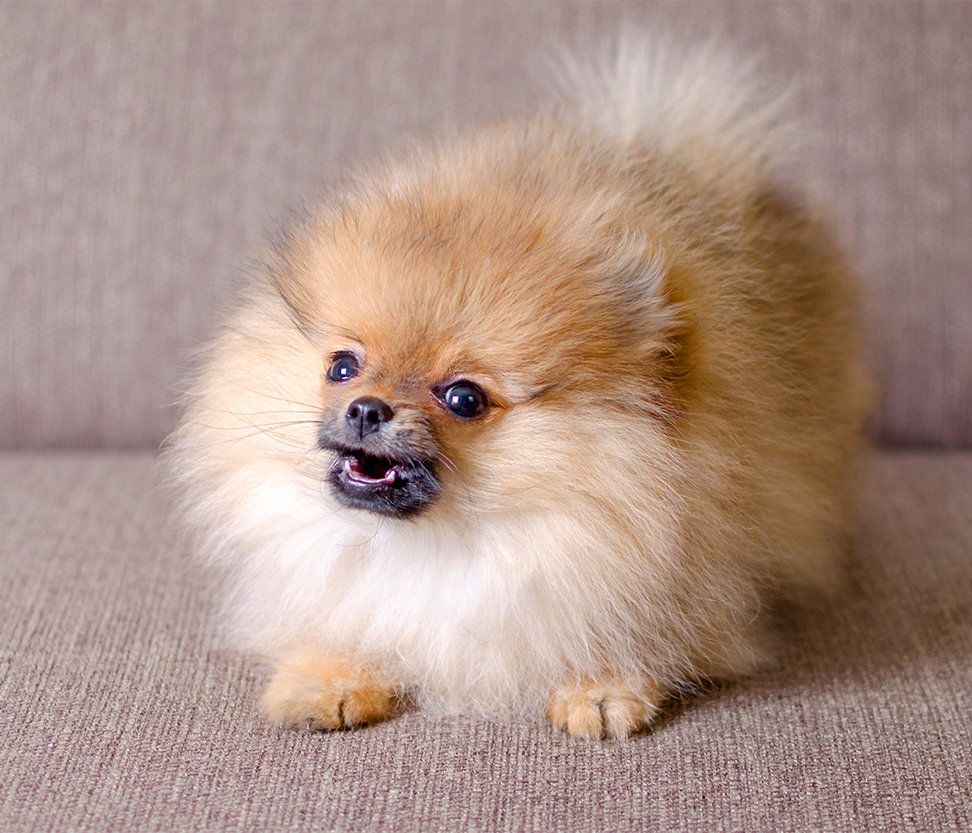
-
“Small Dog Syndrome”
While we may see tiny dogs as “forever puppies”, we often unknowingly reinforce a “Napolean complex” that we refer to as “small dog syndrome.
Small Dog Syndrome: stereotypical behaviors small dogs learn to exhibit due to improper training & socialization including: jumping on people, growling, excitable behavior, barking/yapping, snapping, avoidance and fear, failure to obey commands, resource guarding laps, etc
Due to their small stature, many pet owners allow their pets to exhibit behaviors that they would not allow a larger dog to do (such as jumping on people). These unwanted behaviors are often ignored or even unknowingly encouraged by their owners. Overtime, this can cause unfavorable results
-
Boundaries
Training, setting boundaries, and socialization are extremely important for any dog regardless of size. It is very necessary to be consistent with training your dog and ensure every member of the household understands the rules and boundaries that are to be set.
You must also allow your puppy to receive proper socialization opportunities with other pets and ensure they are playing in an appropriate manner. Reward your puppy when they interact well with other dogs and strangers. Tell them “good boy” or “good girl” when they play nicely or greet people properly. Introduce your puppy to new experiences by bringing them to public spaces, bringing strangers around to interact with them, and let them socialize with other animals. If you only keep your pet at home their entire life, they are not going to be adaptable and will become very stressed when the time comes for them to go somewhere new. Teach them early on to trust strangers and new experiences!
Do not allow your pet to growl or bark or run to you to be picked up. It is important to encourage confidence in your pet and set boundaries against negative behaviors. If you are unsure if you are encouraging unwanted behaviors, ask yourself “would I tolerate this with a bigger dog?”
It is important to differentiate and understand the difference between seemingly “cute” behaviors and behaviors that can become damaging. Do not pick your dog up when they are exhibiting behaviors such as barking, growling, or running away. This is actively encouraging and rewarding your dog for these bad behaviors. Make sure to establish yourself as the leader and reward the behaviors you truly want your dog to exhibit!
-
Hypoglycemia
Tiny puppies are much more likely to go hypoglycemic and this can very quickly turn into a serious situation. Hypoglycemia is a condition in which dogs’ blood sugar levels are too low, quickly causing disorientation, lethargy, paleness of gums. If left untreated for too long, it can result in seizures and even death.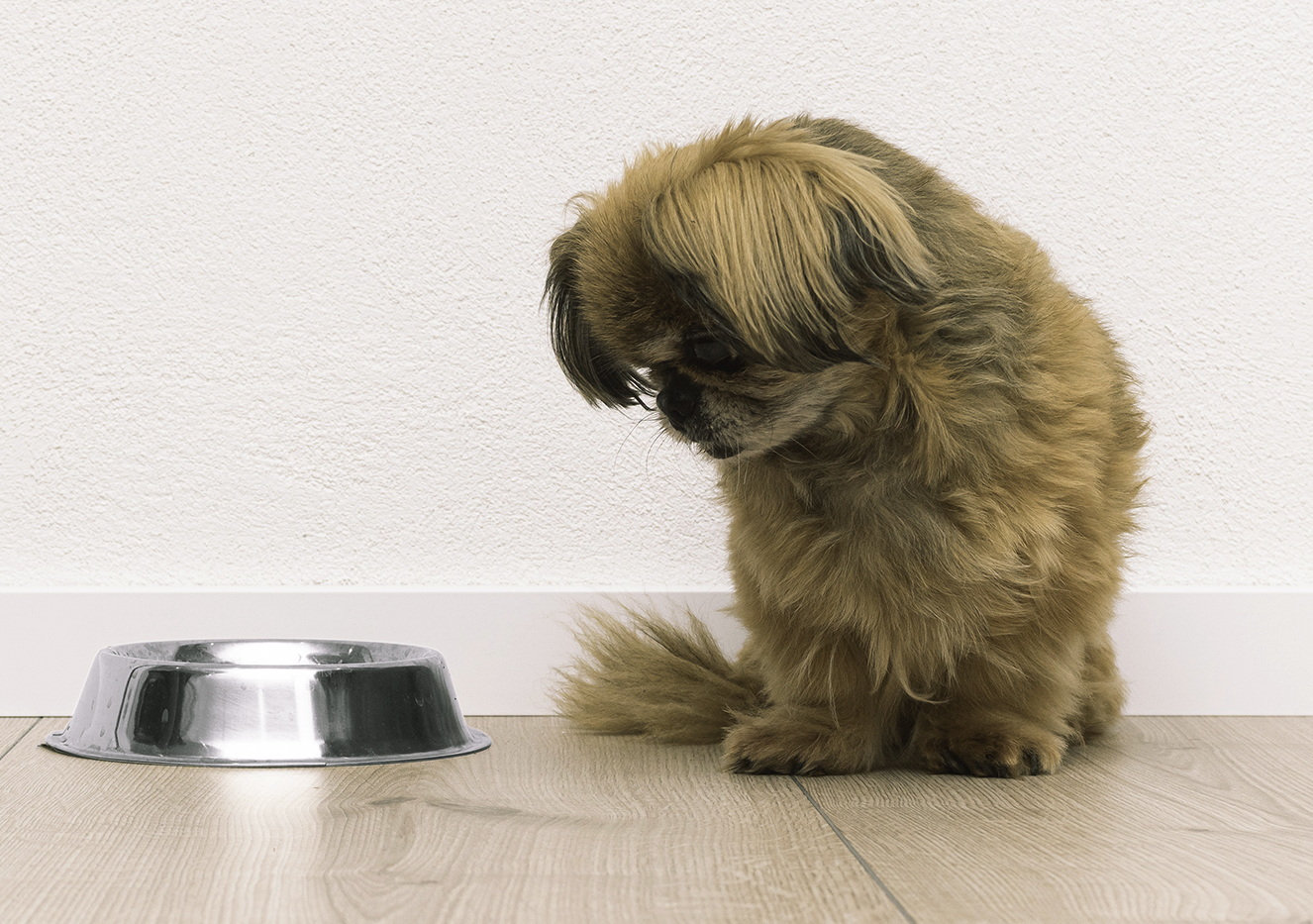
Small puppies need to consistently eat to maintain proper blood sugar levels, preventing hypoglycemia. They should be eating meals at least three times a day and be offered food or even Stress Drops after a play session or a long night’s rest without food.
As your puppy gets older, they develop a better ability to regulate their blood glucose levels, but they should be offered multiple opportunities to eat a day. Prevention is key, but if you suspect your pup is hypoglycemic, it is important to ensure you have Stress Drops or Nutristat on hand and contact your veterinary care provider as soon as possible.
-
Dental Maintenance
Oral disease is the most common medical problem diagnosed in canines. Small breeds are more susceptible to dental diseases due to the anatomy of their mouths, along with other genetic factors. It is important to ensure your pup receives regular dental cleanings and that preventative care is a daily routine with your small breed puppy. Ensure your pup has a variety of dental chew toys to help remove the buildup of plaque and promote proper teeth growth.
If your pup is not an active chewer or only likes soft toys, they can have overcrowding due to retained deciduous teeth. Brush your puppy’s teeth early on so they are used to the routine. Doing so can prevent hefty veterinary bills in the future!
-
Joint Health
Small dogs are more likely to develop joint conditions because of their small stature. Overexertion of the joints from jumping, running, and high-impact exercise can have detrimental effects on your dog. Be sure to monitor your pup and not allow them to jump from high surfaces such as beds and furniture to prevent potentially serious issues such as Patellar Luxation in the future.
-
Obesity
You must monitor your pet’s food intake. They should be offered multiple small meals a day. Small dogs are typically not as active as larger breeds, so they are more prone to weight management concerns. Be sure to actively play with your dog and encourage proper amounts of exercise every day.
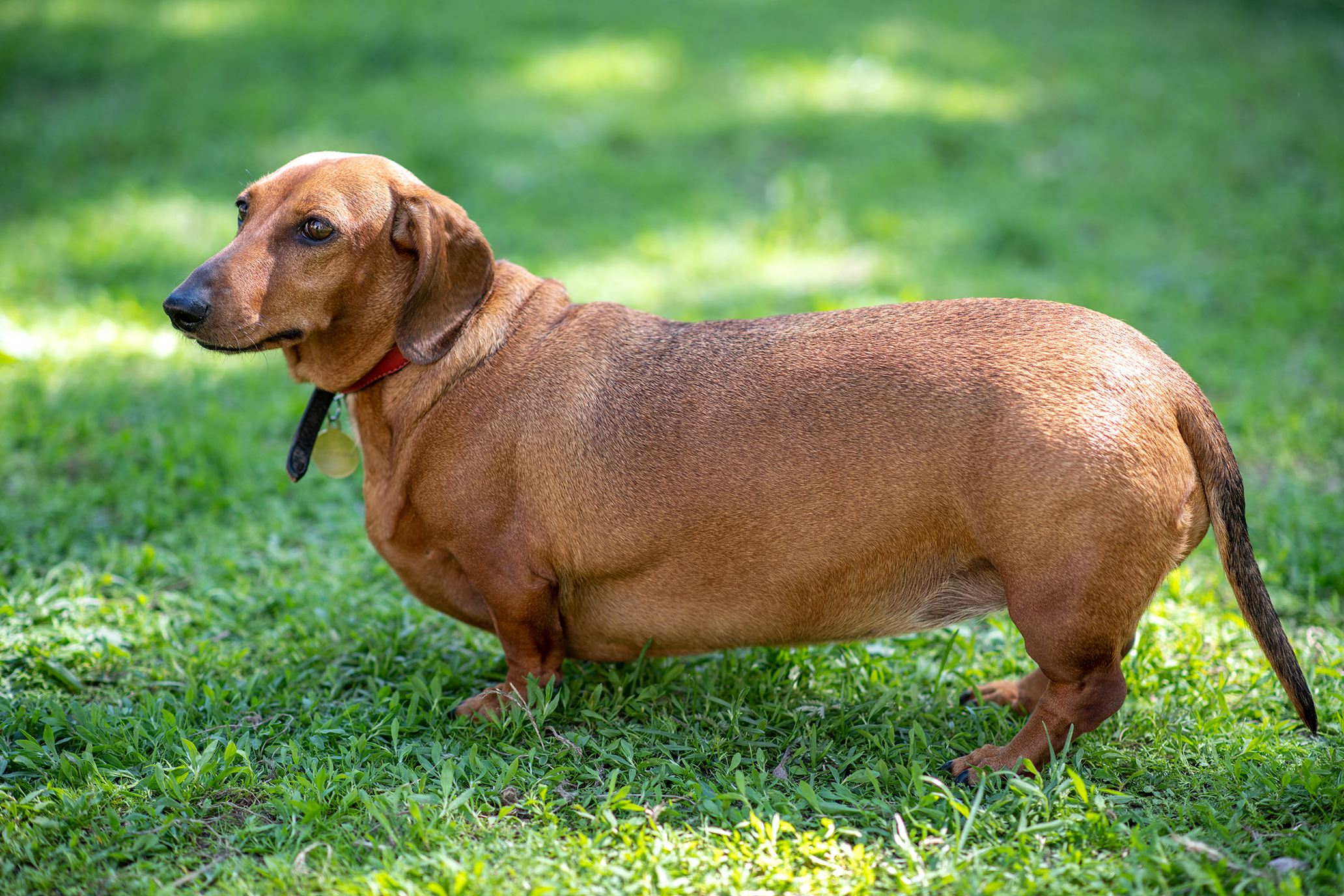
-
Tear Staining
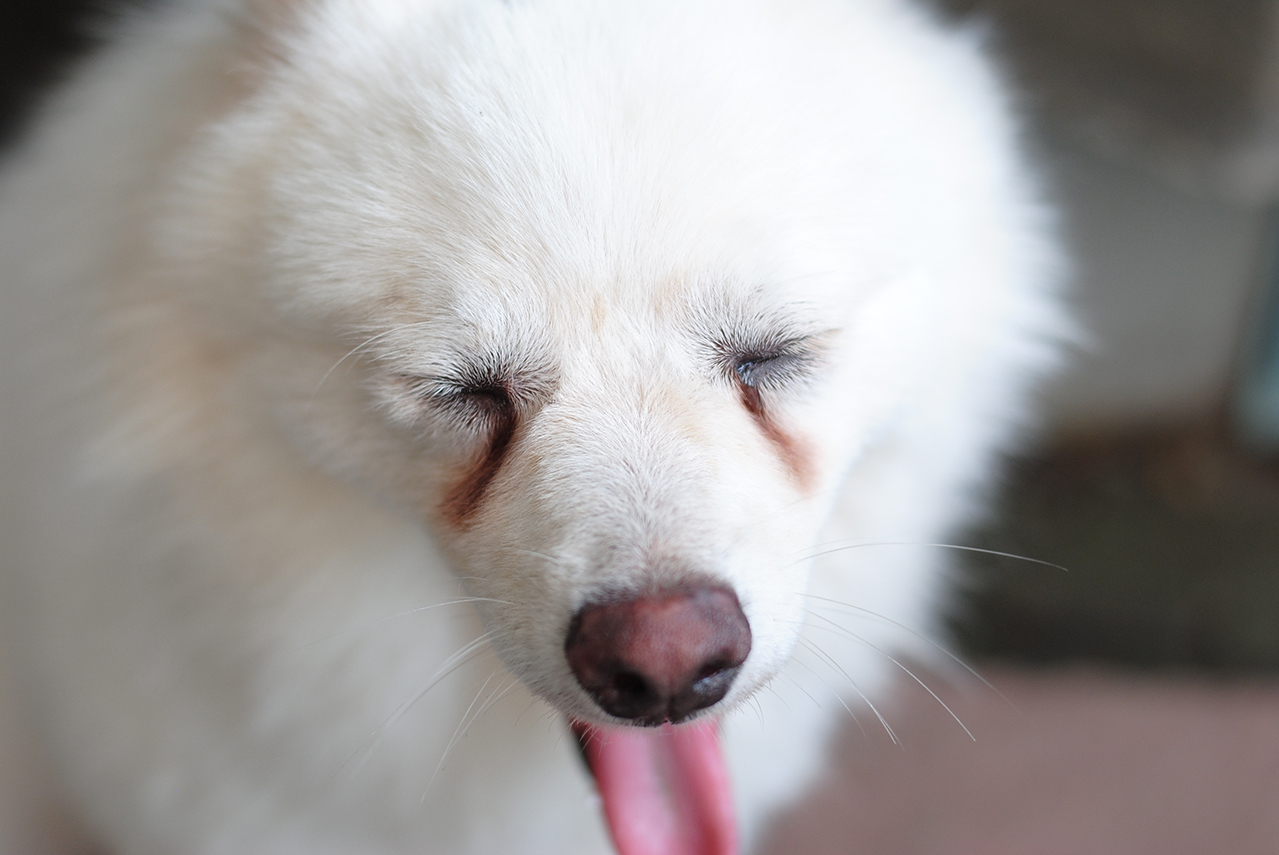
Tiny puppies have a smaller surface area to their face, so they are more prone to a phenomenon known as “tear staining” when they have lighter fur. Tear staining is a natural process. It can be managed through a variety of methods including grooming and diet. It is best to not let any eye discharge build up; clean it with a wet paper towel or cleansing wipe. You can also manage the staining by providing your pup with filtered water and a premium diet.
Small breeds are excellent companions for so many reasons. We love them for their whimsical nature, ability to easily go places with us, and how cute and cuddly they are. But make no mistake about them, a tiny puppy is still a dog! While we may want them to be a cute “purse dog” these breeds are very much animals that like to be animals!
Keep these guidelines in mind when raising your little friend to ensure you get the most out of your relationship.



